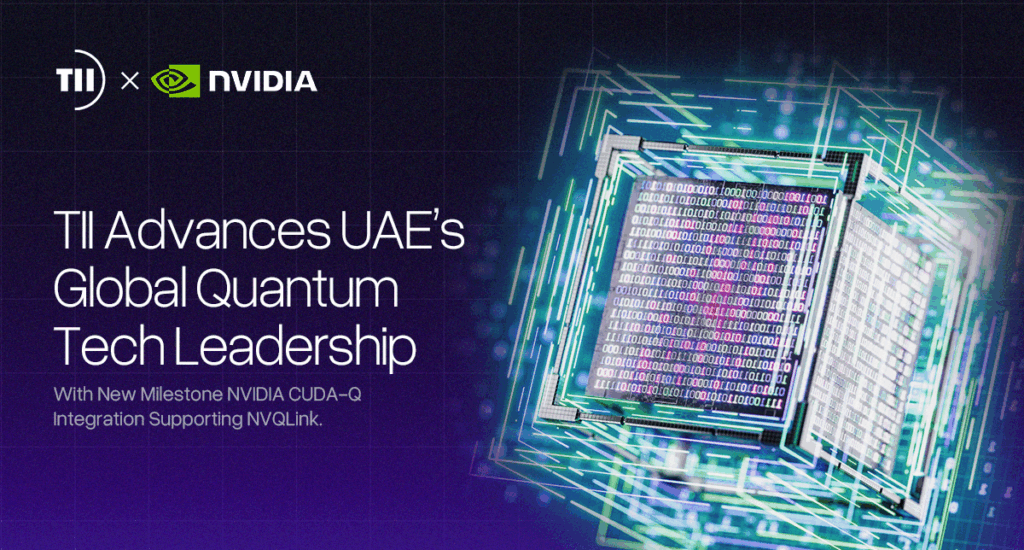Marking a major milestone for quantum research in the UAE, the Technology Innovation Institute (TII), part of Abu Dhabi’s Advanced Technology Research Council (ATRC), has finalised a significant integration between its open-source quantum middleware, Qibo, and the NVIDIA CUDA-Q platform.
The integration strengthens TII’s efforts in hybrid quantum-classical techniques, an essential area of development as next-generation quantum processors are increasingly expected to operate alongside classical computing systems.
Through the connection of Qibo – TII’s software for quantum circuit simulation, control, and calibration – with the NVIDIA CUDA-Q environment, which is designed to support application development across both quantum and conventional systems, researchers can now streamline the design, testing, and optimisation of quantum workflows. This empowers teams to explore more effective combinations of quantum and classical resources for enhanced computational performance.
The technical update ensures compatibility between Qibo and the Quake Multi-Level Intermediate Representation dialect used by CUDA-Q. Dedicated importer and exporter functionalities, now available in Qibo version v0.2.22, enable smoother integration between the different software layers, leading to more efficient experimentation and progress across the quantum computing stack.
As a result, TII is now positioned to begin evaluating the potential benefits of NVIDIA NVQLink, NVIDIA’s high-speed QPU-GPU interconnect, enabling low latency and high throughput quantum-classical workloads. This will allow for performance assessments across quantum algorithms, error correction routines, and calibration tools on TII’s hybrid computing infrastructure – helping to identify where tighter coupling between quantum and classical hardware can offer speed or accuracy improvements, and guiding future system design choices.
“Integrating NVIDIA CUDA-Q into TII’s Qibo marks a pivotal moment for our software strategy,” said Dr. Leandro Aolita, Chief Researcher of TII’s Quantum Research Centre. “This advancement not only solidifies Qibo’s position as a powerful, flexible quantum middleware but also opens new opportunities to improve performance across different hardware platforms – supporting deeper collaboration with NVIDIA and aligning with the UAE’s ambition to be at the forefront of quantum technology.”
TII plans to extend this work by supporting Qibo as a target directly within the CUDA-Q framework, which will further streamline access to their quantum computing hardware platforms and reinforce interoperability.
“Developing a high-performance integration of quantum processors with GPU supercomputers is a critical remaining step for deploying useful quantum applications, said Sam Stanwyck, Group Product Manager for quantum computing at NVIDIA, “TII’s work with Qibo and CUDA-Q will be transformative in providing researchers and developers easy access to the hybrid resources they need to make quantum computing’s next breakthroughs.”
This milestone reflects TII’s commitment to advancing open, flexible quantum software tools and supporting the development of scalable quantum-classical computing systems, contributing to the UAE’s growing role in global quantum innovation.

